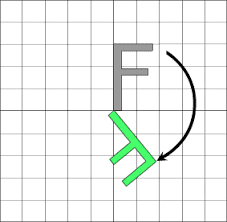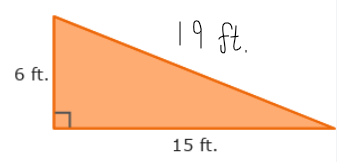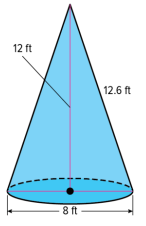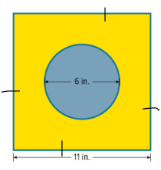Complementary angles have a sum of...
90 degrees
True or False:
Area is the number of triangles that cover a surface.
FALSE
Area is the number of SQUARES that cover a surface.
What kind of transformation is this?

Rotation
What is the volume of the cube?
Volume = 3x5x12
V = 180 in3
True or False:
Vertical angles are supplementary.
FALSE
Vertical angles are CONGRUENT!
What is the formula for the circumference of a circle?
2*pi*r or d*pi
True or False:
The new figure, after the original is transformed, is called the image.
True!
Are these polyhedra?
NO! There are not two parallel bases.
∠M and ∠N are complementary. The measure of ∠M is 38° less than the measure of ∠N.
Find the measure of <M.
<M = 26°
What is the area of the shape below?

45 ft.
Translate point A (-3, 5) along the translation vector <8, -2>. Where is A'?
A' (5, 3)
Find the surface area and volume for the solid below.
SA = 208.6 ft2
Volume = 201.1 ft3
Rays QR and QS are perpendicular. Point T lies in the interior of ∠RQS. If m∠RQT = (7w + 12)° and m∠SQT = (9w − 18)°, find m∠RQT.
m∠RQT = 54°
What is the area of the yellow?

Area of yellow square: 11 x 11 = 121
Area of circle: pi x 9 = 28.3
Yellow - circle = 92.7 in. squared
Rotate point A (2, -5) 270o counterclockwise, about the origin. Where is A'?
A' (-5, -2)
Find the radius of a sphere that has a surface area of 2,463 ft2.
Radius = 14 feet